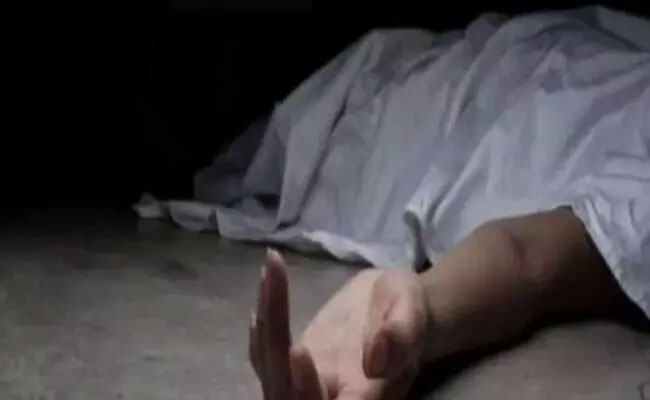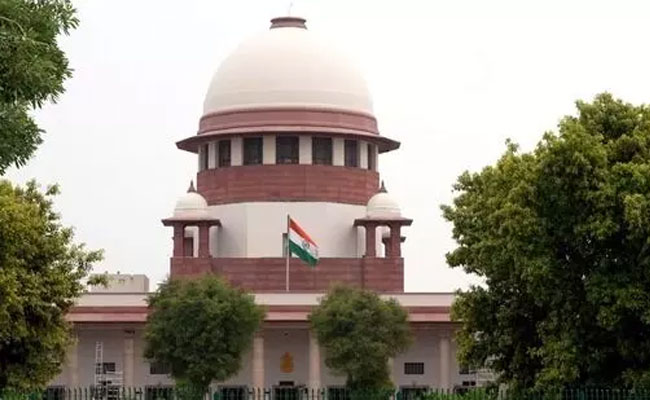Bengaluru, Apr 23 (PTI): Karnataka Chief Minister Siddaramaiah on Wednesday said the Pahalgam terror attack was a "planned one" and claimed that it happened due to the Central government's "intelligence failure".
He also said he had asked the team of officials dispatched to Jammu and Kashmir to hire a special plane to bring back tourists from Karnataka stranded there.
"I feel this attack was a planned one. Whoever has done it, I condemn it. Terror attacks should not happen. Whichever caste or religion they are from, it is still the taking of a life. This is a major terror attack, which the Karnataka government strongly condemns," Siddaramaiah told reporters here.
“I feel there is an intelligence failure of the Centre. In the past also the Pulwama terror attack had happened,” he claimed.
He said he would not agree to any compromise on security and safety, and stressed that terrorists should be neutralised.
He reiterated his strong condemnation of the Pahalgam attack, in which two tourists from Karnataka were among those killed.
"Already, I have sent a team of officials to Kashmir, including Karnataka Labour Minister Santosh Lad. I have instructed them to hire a plane and bring the tourists safely back to the state. I had also asked them to bring the bodies of the two slain tourists in the same plane, but the Government of India has made arrangements to dispatch the bodies to the respective states," Siddaramaiah said.
The terror attack in Kashmir's Pahalgam on Tuesday claimed the lives of 26 people, largely tourists.
ಕಾಶ್ಮೀರದಲ್ಲಿ ಪ್ರವಾಸಿಗರ ಮೇಲೆ ನಡೆದಿರುವ ಉಗ್ರರ ದಾಳಿಯನ್ನು ಅತ್ಯಂತ ತೀವ್ರವಾಗಿ ಖಂಡಿಸುತ್ತೇನೆ. ಕರ್ನಾಟಕದ ಪ್ರವಾಸಿಗರಲ್ಲಿ ಮಂಜುನಾಥ್ ರಾವ್ ಹಾಗೂ ಭರತ್ ಭೂಷಣ್ ಎಂಬುವರು ಮೃತಪಟ್ಟಿದ್ದಾರೆ. ಕನ್ನಡಿಗರ ರಕ್ಷಣೆ ಹಾಗೂ ಇನ್ನಿತರ ವ್ಯವಸ್ಥೆಗಳಿಗಾಗಿ ಅಧಿಕಾರಿಗಳ ತಂಡವನ್ನು ಕಾಶ್ಮೀರಕ್ಕೆ ರವಾನಿಸಲಾಗಿದೆ. ಅಲ್ಲದೇ, ಕಾಶ್ಮೀರಕ್ಕೆ ತೆರಳಿರುವ… pic.twitter.com/KuRmMStw9X
— Siddaramaiah (@siddaramaiah) April 23, 2025
Let the Truth be known. If you read VB and like VB, please be a VB Supporter and Help us deliver the Truth to one and all.
Kolar (Karnataka) (PTI): Defence Minister Rajnath Singh on Tuesday said the investment into H-125 helicopter programme is "anticipated" to cross Rs 1000 crore, and create a number of jobs, and called it a "shining example" of mutually beneficial partnership with friendly countries in high-end manufacturing sector.
He was speaking at the inaugural ceremony of the final assembly line of H-125 helicopters here.
Prime Minister Narendra Modi and French President Emmanuel Macron virtually inaugurated the Airbus H125 light utility helicopter Final Assembly Line at Tata‑Airbus' facility at Vemagal Industrial Area in this district from Mumbai.
Singh, accompanied by his French counterpart Catherine Vautrin, congratulated Tata Advanced System and Airbus Helicopters on the inauguration of the project and recalled their earlier association as well.
"This project is a shining example of mutually beneficial partnership with friendly countries in high-end manufacturing sector," Singh said.
"The H-125 program investment is anticipated to exceed Rs 1000 crore and is likely to create direct and indirect employment opportunities for our skilled and hard working younger generation," he said.
Renowned for its exceptional reliability, versatility, and outstanding performance under diverse operating conditions, the H-125 has proven to be one of the most effective and trusted single-engine helicopters globally, he said.
He recalled that Tata Advanced Systems and Airbus had earlier joined hands for a project in Gujarat's Vadodara for the C-295 aircraft, which he described as a symbol of how Tata in particular and India in general can collaborate with international OEMs to contribute to the vision of a stronger India.
The Defence minister said "Make in India" and self-reliance have been the cornerstone of India's economic policy since 2014.
Singh recalled that this policy initiative was launched by PM Modi, under which India is committed to achieving self-reliance in critical technology and the manufacturing of high-end products and equipment through mutually beneficial partnerships.
"For more than a decade, India has been charting industrial development through large-scale infrastructure building, capital infusion in important sectors through a number of incentive schemes on the one hand, and providing a level playing field for facilitating investment on the other," he said.
He added that it has also been the government's focus to support small and medium industries and strengthen the startup ecosystem in particular. Overall, the focus has been on holistic industrial development, which not only caters to domestic demand but also addresses the needs of other countries.
Highlighting reforms in the defence sector, Singh said these measures have augmented the contribution of the private sector in the defence industrial ecosystem.
According to him, historically, Indian defence production was largely public sector-oriented due to requirements of high capital investment and long gestation periods, resulting in the private sector's contribution being far less than desired.
However, with reforms such as the corporatisation of ordnance factories, establishment of defence industrial corridors, and other initiatives to raise the private sector's share in total defence production, it now stands at almost a quarter of the country's total defence production.
Defence exports have also increased manifold, placing India among the top exporters in the world, he said.
Singh said the growth trajectory has given a massive boost to MSMEs and ancillary sectors, which have grown to more than 16,000 in number, with many foreign companies sourcing components from Indian MSMEs.
He invited companies to deepen the partnership through meaningful technology transfer and offer platforms to meet the security needs of other countries as well.
Union Civil Aviation Minister K Rammohan Naidu, who also attended the event said the H125 final assembly line set up by Tata and Airbus marks a defining moment for India's aerospace sector, calling it "a proud symbol of rising confidence in India's high-precision aerospace capabilities."
He described defence and civil aviation as "two strategic pillars of the Indo-French partnership" and said the new facility would reinforce "a single integrated aerospace ecosystem" by assembling both civil and defence variants.
Noting that India has risen from the 10th to the third largest civil aviation market in just 11 years, Naidu asserted that the country now has "the market, the export potential, the policy ecosystem, the skilled workforce and the strategic global partnerships to emerge as a rotary-wing manufacturing hub".
"The future of rotary aviation in South Asia will be designed, manufactured, certified, maintained and exported from India," he said, adding that the country is "not just flying high, but flying past all horizons" under the Make in India and Viksit Bharat 2047 visions.
Tata Advanced Systems CEO and MD Sukaran Singh said in this facility here, "we will start building helicopters without any government or defense orders."
"However, we will be ready to supply the defense forces as and when they want. The first helicopter will fly out this facility by mid 2027."





